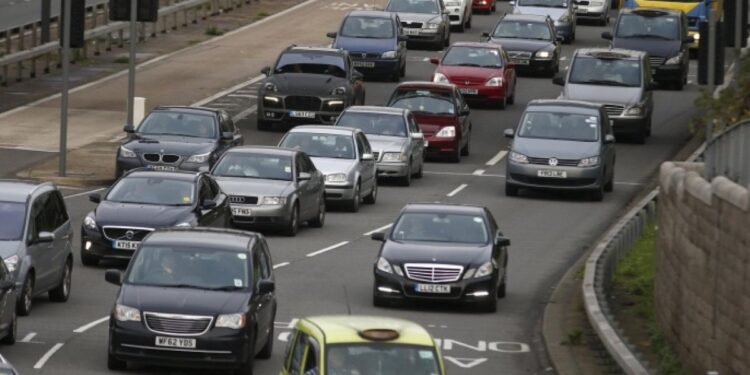BBC said that US President Donald Trump expressed his dissatisfaction with the lack of Europeans to buy American cars, with the exception of Tesla.
Trump has threatened to impose high customs duties on European cars imports to pressure the European Union countries to import more American cars. But this raises questions about the reasons why American cars are less popular in Europe.
Challenges in European roads
American cars, especially large trucks and SUVS, are not practical in ancient European cities with narrow and crowded streets.
Hamebus Angelo, an analyst at Handsbankin Capital Markets, says he tried to drive a large multi -user car in the streets of Italy “and it was very difficult.
In Europe, consumers prefer small and economic cars that suit their lifestyle and the crowded urban environment. On the other hand, American cars are popular in their homeland due to the vast areas and broad roads.
The high cost of fuel
One of the main factors that affect the choice of Europeans is the high cost of fuel in the old continent compared to the United States.
“In the United States, consumers pay for a gallon of fuel we see, we are a price per liter,” says Mike Have the CEO of the UK’s manufacturers and merchants Association.
This difference in the cost of fuel makes large cars that consume large quantities of fuel less attractive in Europe, where consumers prefer economic cars.
Main disagreement point
One of the reasons – Trump with his criticism of the commercial situation – is a great difference in customs duties between the United States and the European Union. The latter imposes 10% fees on imported American cars, while the United States imposes much lower fees of only 2.5% on European cars.
This disparity resulted in a large balance of trade between the two parties. In 2022, Europe exported about 692,334 cars to the United States worth 36 billion euros (37 billion dollars), while US car exports to Europe amounted to 116,207 units of only 5.2 billion euros (5.4 billion dollars).
Trump described this gap as “unfair” and indicated that he would seek to raise customs duties on European cars imported to the United States to address this defect. This position prompted the European Union to consider reducing its customs fees to avoid the outbreak of a trade war between the two parties.
American strategies
To meet the challenges in the European market, American companies, such as Ford, began to restructure their business. It abandoned the production of small cars that were competing with the leading European, and instead focused on electric cars and commercial vehicles.
Ford plans to reduce its power operating in Europe by about 3,700 jobs by 2027, which represents a decrease of 14% in the number of its employees of 28 thousand employees. It also accelerates the shift towards electric cars to meet the increasing demand in Europe.
American companies are facing additional challenges by Chinese cars, which are increasingly popular due to their low prices. However, companies such as Tesla managed to enhance their presence in the European market by investing in local factories such as their factory, near Berlin in Germany, which produces “Wi -Y” cars for the European market.
European market complications
Europe is a very complex market for car makers due to the disparity in tax laws and regulations between countries, in addition to linguistic and cultural challenges. GB Morgan Bank, a car expert, says, “to achieve success in Europe” needs to provide suitable products and manage factories efficiently. “
In some European countries such as Germany, France and Italy, consumers tend to buy local brands such as BMW, Mercedes, Volkswagen in Germany, Renault, Peugeot and Siertyin in France, Matm and Alva Romeo in Italy.
Can the problematic customs duties solve?
According to the BBC, Trump aspires to strengthen the American industry by increasing local production and innovation. However, experts such as Andy Palmer, former CEO of Aston Martin, believes that the imposition of customs duties is not the solution.
“Customs isolate companies from the free market and make them less innovative and more lazy, which weakens their competitiveness in the long run,” says Palmer.
“The issue is not just a trade, but rather an investment and cooperation to build a better future,” he says.



